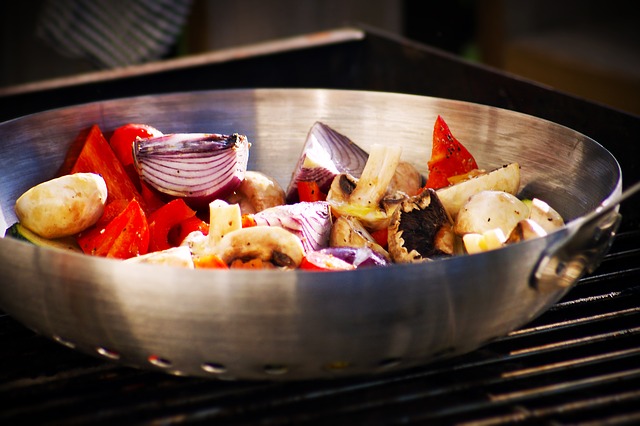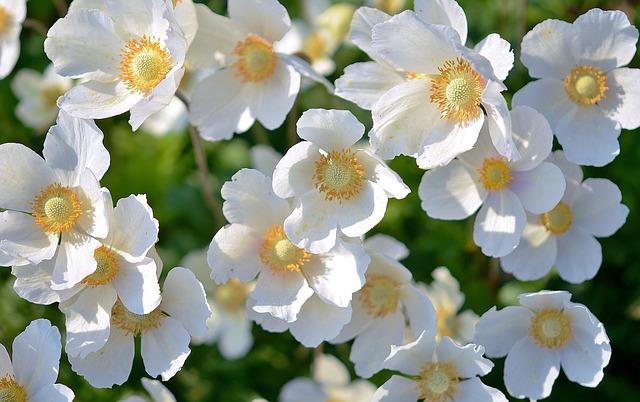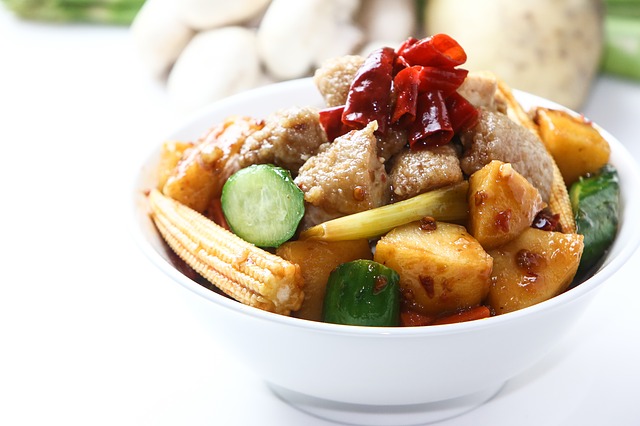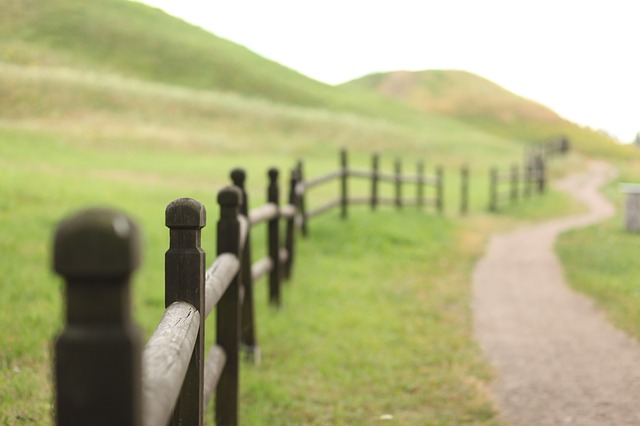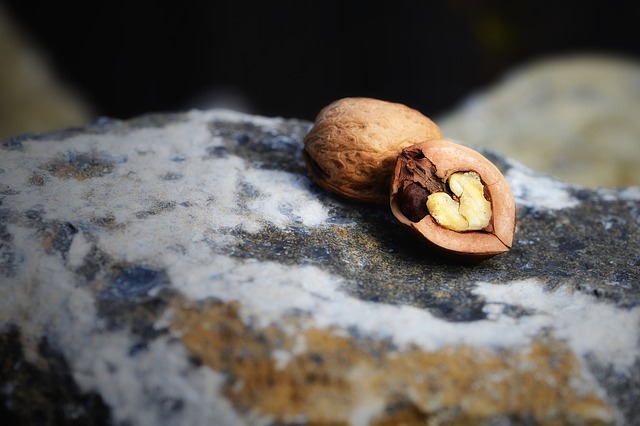2015年6月
文/Andy Lee
中文翻譯:元元
很多以前發生的事情我已記不起,特別是那段湮遠的童年歲月。然而,我卻能記起在父母工作的地方所度過的時光。就像很多移民到英國的中國人一樣,我的父母也是靠開餐館謀生。我還能隱約想起上世紀80年代我出生的時候,父親在德國經營的一家中餐館。當時我們全家住在一座公寓裡,一樓就是餐館,工作與生活僅有一步之遙。搬到英國之後,父親換了工作,但幹的還是餐飲的老本行。他接管了舅舅的外賣店,然後大部分週末我們就待在外賣店裡,要麼待在前台和廚房之間的儲藏室裡,要麼待在樓上看電視(或者做作業,誰一叫我就得跑過去!)那時,生活和工作都是快樂的,我還記得父親讓我幫忙打包蝦片,而我卻一邊打包一邊吃,包一塊,吃一塊。我甚至能回憶起油糊住嗓子的感覺!所以通常我會從冰箱裡拿出一罐可樂來漱漱喉嚨——真是非常不健康!而且我經常吃掉很多,然後到了正餐的時候完全吃不下。我還記得他們給了我一把很鈍的刀子讓我切蘑菇。切了十個蘑菇之後,我就開始變著花樣,把它們切成各種形狀。儘管後來挨了罵,我確定當時父親咧嘴笑了一下。畢竟當年我還只是個八歲的孩子呢!
現在回想起那時的歲月和成長環境,我沒有一絲的後悔。我很早就知道了「紀律」這個詞的含義,我可能也比學校的朋友們更早就知道,錢是要靠付出才能得到的,而不會在我想要的時候像變戲法似的出現。我也明白了父母並不是錢包,也不是銀行。我明白自己要為之付出汗水:我得去切蘑菇,打包蝦片,而幹完了這些就能賺上一英鎊!那可是夠我買四條巧克力和泡泡糖的!而就在玩笑之間,我也看到了大廚是怎樣像變魔術一樣,把貯存在冰淇淋盒裡的佐料變成多汁而美味的酸甜鳳梨雞肉菜式。他太神奇了,而且他是餐館裡唯一戴著帽子的,這就說明他很特別。然後我會看到食物被裝進一個個盒子裡(有時候是我自己親手裝的),然後放進袋子裡,換成錢。我看到了賺錢的過程。在八歲那年,我已經明白「做生意」是怎麼一回事了。
也許是因為父輩們在商業和經濟上取得了成功,現在的這一代稍稍輕鬆了一些。他們能真正作為孩童享受童年,而不是當個「小大人」。他們成長的環境更舒適,面對的生活壓力和汲取的人生經驗也更適於他們這個年齡。我經常會看到一些人們發在Facebook上的很有意思的圖片。其中一個主題是「第一世界的煩惱」。這實際是改寫了一下「第三世界的問題」這個短語——問題在發展中國家是很常見的,比如說對淨水的最基本的需求。而在第一世界的發達國家裡,年輕一代經歷的卻是完全不同的、更瑣碎的煩惱——儘管有時候根據他們的反應看來,你會覺得他們是在面臨生死抉擇。這些圖片看來滑稽,但它們能表達出內在的事實,展示出新一代年輕人的「權利文化」。比如一幅圖上畫的是一個手拿iPhone的小男孩在哭,因為他想要白色的卻只能勉強接受黑的! 要麼就是另一幅圖,一個小女孩盯著她置滿了衣服的衣櫃,而下面的描述文字卻是「我沒衣服穿」! 當然很多時候這些圖片都有一些誇張的成分,儘管如此,這些圖片還是能揭示出當前這一代一些特質。
我會說,現在這一代的一些特質比我父母親的那一代要弱得多了。像紀律、毅力、決心、職業道德這樣的詞彙是父輩們歷經艱苦勞動、承受種族歧視、學習並融進新的社會新的文化之後才得以明確和細化。在過去,辛勤工作(對很多人來說現在也是如此)意味著每天要工作12小時,每週工作六天,而每天都是站著工作。而回報又是什麼?就是能讓他們的孩子不再需要承擔他們那樣辛苦的工作。對這一代而言,「辛勤工作」意味著每天坐著工作八小時,每週工作五天。所以上一代的辛勤是為了下一代能過上更輕鬆更優渥的生活。
我們成長的方式塑造成今天的我們。記住自己的根是非常有意義的事情。我的父輩和其他和他們一樣的人帶著一點點積蓄,遠赴六千英里之外這片陌生的土地,沒有自己的同胞,聽不懂當地的語言,而當年他們的抉擇應當永遠被銘記。他們多年之前作出的這個抉擇為我們鋪設了新的道路。這已經改變了他們後人的前進方向,也許也給予了他們一個更好的開始。
歷經過所有艱辛、擺脫了謀生的窘境,他們才開始過上了真正的生活。是的,這關乎生存,但這又遠比生存更多。這關乎命運。這關乎驕傲。這關乎克服所有的挑戰,在一片自己是少數群體的陌生土地上扎根立足。如果你是他們其中一人,那麼我想要替你的孩子說聲謝謝你。感謝你的所有犧牲,感謝你的堅韌不拔,感謝你為了讓家人過上更好的生活而經歷過種種困境。
我們這一代與下一代之間也發生了很大的變化,但有些事實是不變的。我個人非常珍視自己所承繼的文化價值,並且也有充分的理由相信我的同輩也應如此。我們需要在已經融進的這個社會中找到自己的身分,而與此同時不忘感激自己的根,我們需要接受的挑戰就是權衡這兩者的關係。而最理想的情況就是我們能找到發揮出自己華僑身分最大優勢的人生目的,而不是過分強調我們的英國特色或是中國出身,要在日常生活之中讓這兩方面同時得以活躍,同時得以表達。我的父母親最終為下一代重新定義了他們當年的旅程,我們就應該尊重他們的犧牲,並擁抱我們全新的雙重文化身分。
原文 (Original text)
Growing up in a takeaway
 My memory is not one of my strengths, in particular my memories of my childhood. However, I do remember that a lot of it was spent in and around my parents’ place of work. Like so many Chinese who moved to the UK, my parents made a living through the catering industry. I vaguely remember the Chinese restaurant that my father managed in Germany in the 80s where I was born. We lived in an apartment block with the restaurant on the ground floor, so work was just a lift ride away. When we moved to England, my father changed jobs but not industry. He took over his brother-in-law’s takeaway business, and so began a tradition of spending most weekends at the takeaway, either in the store room situated between the front serving counter and the kitchen, or upstairs watching TV (or doing my homework, depending on who was asking!). I had fun times living and working there. I remember being given the task of bagging the prawn crackers and eating every other one. Bag one, eat one. Bag one, eat one. I could feel the oil coating the inside of my throat! So I would wash them down with a can of coke I took from the fridge – a great example of an unhealthy diet! I’d eat so much that I’d be too full to eat any proper food when it came. I also remember being given a very blunt knife to cut mushrooms with. After about the tenth one, I started to make the job more interesting by cutting them into all sorts of different shapes. Although I was told off, I’m sure I could see a slight grin on my dad’s face. After all, I was only eight years old.
My memory is not one of my strengths, in particular my memories of my childhood. However, I do remember that a lot of it was spent in and around my parents’ place of work. Like so many Chinese who moved to the UK, my parents made a living through the catering industry. I vaguely remember the Chinese restaurant that my father managed in Germany in the 80s where I was born. We lived in an apartment block with the restaurant on the ground floor, so work was just a lift ride away. When we moved to England, my father changed jobs but not industry. He took over his brother-in-law’s takeaway business, and so began a tradition of spending most weekends at the takeaway, either in the store room situated between the front serving counter and the kitchen, or upstairs watching TV (or doing my homework, depending on who was asking!). I had fun times living and working there. I remember being given the task of bagging the prawn crackers and eating every other one. Bag one, eat one. Bag one, eat one. I could feel the oil coating the inside of my throat! So I would wash them down with a can of coke I took from the fridge – a great example of an unhealthy diet! I’d eat so much that I’d be too full to eat any proper food when it came. I also remember being given a very blunt knife to cut mushrooms with. After about the tenth one, I started to make the job more interesting by cutting them into all sorts of different shapes. Although I was told off, I’m sure I could see a slight grin on my dad’s face. After all, I was only eight years old.
Reflecting back on those times, I don’t have any regrets about the environment in which I was raised. I learned from an early age what discipline meant. I probably understood sooner than my school friends that money has to be earned. It doesn’t magically appear as soon as I ask for it. I learned not to equate parents with wallets or banks. I learned that effort is required: I needed to cut up mushrooms and bag prawn crackers, and that would be worth a pound! Enough for me to buy four chocolate bars and bubblegum! Joking aside, I learned how, as if by magic, the master chef would turn various ingredients sitting in ice cream tubs into juicy, tasty-looking chicken and pineapple chunks of the sweet and sour variety. He was amazing. And he wore a hat. No one else wore hats. That meant he was extra special. Then I would see the food boxed up (sometimes by my very own hands), placed in a bag and exchanged for money. I saw how money was made. At the age of eight, I saw how business works.
Maybe as a consequence of their parents’ business and financial success, the current generation has it slightly easier. They are able to have a childhood where they can be children instead of little adults. They can grow up more comfortably, handling pressures and learning life lessons that are more appropriate to their age. I often come across funny pictures that people post on Facebook. One theme of these pictures is ‘first world problems’. This plays on the term ‘third world issues’ – issues that are very real in developing countries, such as the basic need for clean water. In developed first world countries, the younger generation tend to experience a different and far more trivial set of problems – though sometimes, judging by their reaction, you would think it was a life or death situation. Whilst the intention behind the images is to be humorous, they also contain a lot of truth, exposing the entitlement culture in which the younger generation is growing up. For example, a picture might show a young boy crying while holding an iPhone. He wanted a white one but had to settle for black. Or there might be a photo of a girl staring at her open wardrobe full of clothes with the caption ‘I have nothing to wear’. Of course, these pictures are exaggerated for extra effect, but they nevertheless highlight some characteristics of today’s generation.
I would guess that certain characteristics grown weaker than they were in my parents’ generation. Words like discipline, perseverance, determination, and work ethic were defined and refined through long hours, hard physical labour, dealing with racism, learning and integrating into a new society, a new culture. Working hard back then – as is still the case for so many – meant 12 hours a day, 6 days a week, on your feet. And the reward? To redefine the term work hard for their children. So that for them work hard can mean sitting on their bottom for 8 hours a day, 5 days a week. So that the children can have an easier, better life.
The way we grew up forms and moulds us into the people we are today. There is something extremely meaningful in remembering our roots. The 6,000-mile journey that my parents and many others like them undertook, travelling with few savings to a foreign land where they had no community and were unable to speak the language, should never be forgotten. That decision that they made all those years ago has paved a new path. It has changed the direction of those that come after them, and maybe given them a head start.
Against the odds, they managed to carve out not just a living but a life. Yes, it was about survival but it was also about so much more than that. It was about fortune. It was about pride. It was about overcoming the challenge of establishing a foothold in a country where they were the minority. If this is you, then, on behalf of your children, I want to thank you. Thank you for the sacrifices you’ve made. Thank you for persevering. Thank you for all the hardships that you have faced in attempting to build a better future for your family.
So much can change between one generation and the next, and yet so much stays the same. I personally cherish my heritage and I would make a strong case for my peers to do the same. The challenge for us is to balance the tension between claiming our identity in this society into which we have integrated, whilst still holding a deep appreciation for our roots. The best scenario would be one where we have found a purpose in our lives that brings out our full identity as British-born Chinese, not repressing either our British characteristics or our Chinese upbringing, but allowing both to flourish and to express themselves in our daily lives. Just as our parents radically redefined the journey for the generations that now follow them, we would do well to respect their sacrifices by embracing our new-found bi-cultural identities.
